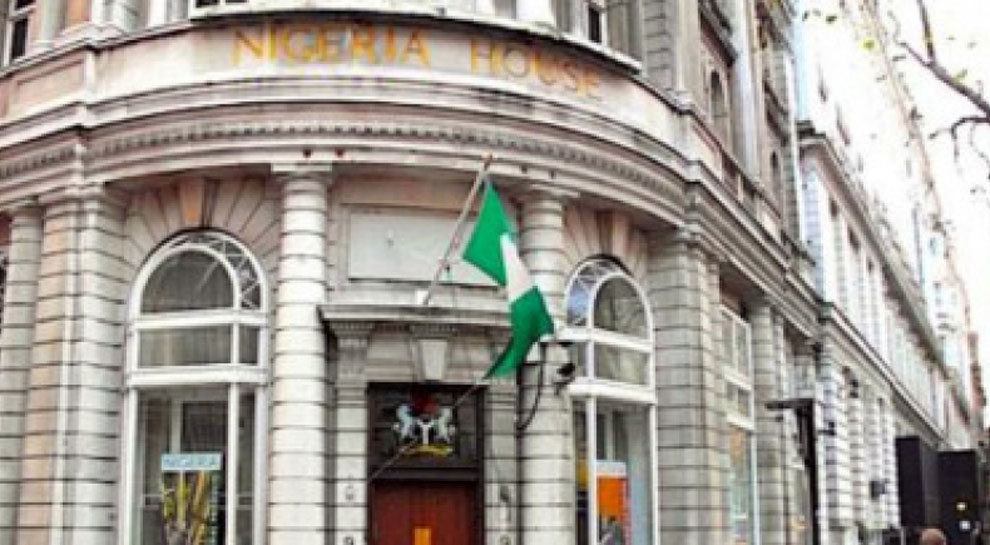Two Nigerian properties located in the United Kingdom are on the verge of being taken over by a Chinese investor following an order granting the investor the right to enforce a $70 million investment treaty award against Nigeria.
The investor, Zhongshan Fucheng Industrial Investment, was granted final charging orders over two UK residential properties owned by the Nigerian government after the company also attached a £20 million debt relating to the high-profile P&ID case.
The Chinese firm secured this order on June 14 when Master Sullivan in the Commercial Court in London granted the orders in respect of two Liverpool properties estimated to be worth a combined £1.7 million.
According to the judge, the order was premised on the fact that the properties have been converted to commercial use outside Nigeria’s diplomatic or consular activities in the UK, stressing that enforcement of the order should prevail.
The high profile case was a gritty legal battle between Zhongshan represented before the court by Withers and barristers at 3VB, while Nigeria was represented by Squire Patton Boggs and a barrister at Atkin Chambers.
Sources said the underlying arbitration was in relation to a joint venture with Nigeria’s Ogun State to establish a free trade zone near Lagos in 2013. A Zhongshan subsidiary held a 60% stake in the project but Ogun terminated its participation three years later.
In 2021, a London-seated UNCITRAL tribunal chaired by Lord Neuberger including Matthew Gearing KC and Rotimi Oguneso SAN said Nigeria was guilty of expropriation and other breaches of the China-Nigeria bilateral investment treaty and ordered the country to to pay US$55.6 million plus interest and costs.
READ ALSO:
- Netanyahu: Israeli forces will move to Lebanon border as Rafah winds down
- Sokoto government denies plot to dethrone Sultan
- Five killed, dozens injured in Russian missile attack on Ukraine’s Pokrovsk
Nigeria in the same year put a challenge against the award in the Commercial Court on jurisdictional grounds. Nigeria’s position was that the arbitration clause in the BIT was invalid. But in later development, Nigeria withdrew the challenge before a hearing on Zhongshan’s application for security and security for costs was about to take place.
Mrs Justice Cockerill in the same court granted Zhongshan an ex parte enforcement order in December 2021, but Nigeria did not file againt this order within the 74-day deadline allowed by the law.
In July 2023, the Court of Appeal in London stopped Nigeria from bringing a late challenge to the enforcement order, stressing Cockerill’s provisional determination that state immunity did not apply had become final.
The investor reportedly got interim charging orders in June and August last year over the two properties in Liverpool, which are owned by the Nigerian government.
Nigeria’s efforts to dismiss these charging orders failed as Master Sullivan in her judgement, held that the properties are leased to residential tenants and that no “consular activities are actually taking place on the premises”.
She also dismissed Nigeria’s arguments that it had not been properly served with the interim charging order applications under the State Immunity Act and that Zhongshan had failed to give full and frank disclosure when seeking them.
Master Sullivan also dismissed Nigeria’s objection about parties bringing multiple enforcement action, saying that parties are “entitled to bring as many types of enforcement action as they see fit to recover their debt.” She noted that Nigeria had yet to pay any of the award and that the value of the properties represented a “small proportion of it”.
READ ALSO:
- Cleaner bags life jail for sexually assaulting baby in church
- Wikileaks founder Julian Assange to leave prison after US plea deal
- Security: FAAN sends armed special force to five airports
Timi Balogun of Squire Patton Boggs, counsel to Nigeria, said: “We respectfully disagree with the Master’s decision, which we believe somewhat brushes over complex public international law issues, including with respect to state immunity and the right of a foreign state’s High Commission to own and manage portfolios of fixed assets in England and Wales. We believe that such issues need to be weighed very carefully, and we intend to appeal this decision so that these complex and important issues can be considered by the higher courts.”
Zhongshan applied to enforce the award in Washington, DC in 2022. Last year, the DC district court rejected Nigeria’s motion to dismiss the action on sovereign immunity grounds. The state argued the China-Nigeria BIT was “quintessentially sovereign” and therefore the award did not arise from a commercial relationship between the parties. The DC district proceeding is stayed pending Nigeria’s appeal of the sovereign immunity decision.
Zhongshan has also taken enforcement measures in various other jurisdictions, including in Quebec, where it seeks conservatory seizure of a private jet; and in Belgium, where Nigeria is challenging attachments of properties.
In the British Virgin Islands, Zhongshan has obtained an interim attachment over a £20 million liability owed Nigeria by BVI-registered company Process & Industrial Development (P&ID) under an English Commercial Court ruling. The Chinese company withdrew an earlier application to attach the same liability in England.
The Commercial Court ordered P&ID to pay Nigeria £20 million in costs in December last year after upholding the state’s challenge to an US$11 billion award in favour of the company. Mr Justice Robin Knowles found the award was procured through false evidence, corrupt payments and improper retention of leaked documents.
At the time of filing this report yesterday, Nigeria’s Ministry of Foreign Affairs was yet to react to a message sent to it on this development.
Chinese investor seizes Nigeria’s properties in UK over debt
-Leadership


































